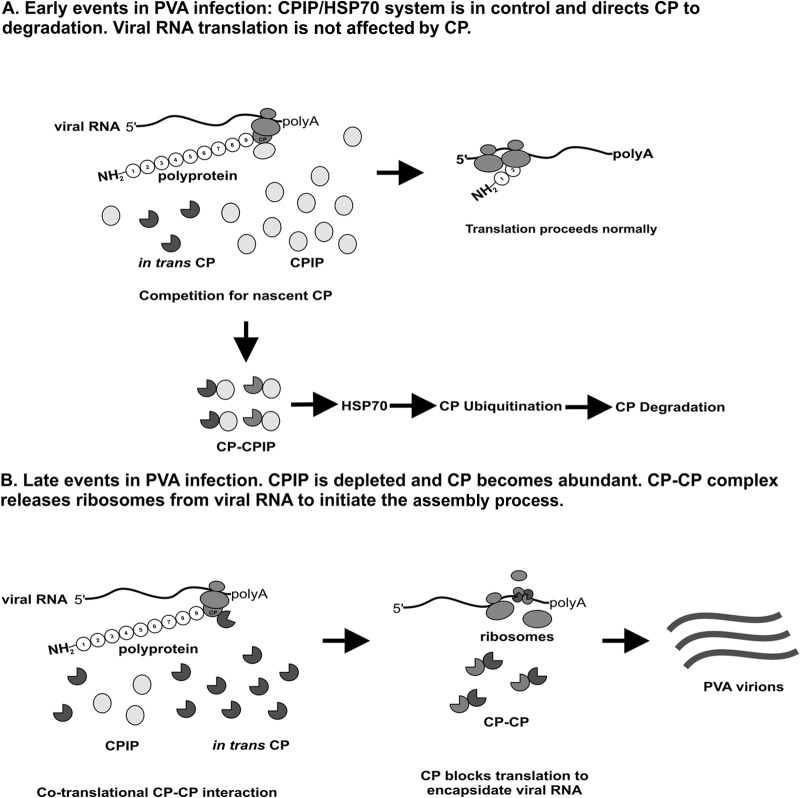FIG 8.
Proposed model for CP-mediated inhibition of translation/assembly initiation. (A) In the early stages of infection, CPIP is present in large amounts in the cell. It competes with CP expressed in trans for CP expressed in cis. Because it is more abundant in the cell, it binds CP and delivers it to HSP70, which tags it for degradation via the proteasomal pathway. CP is out of the way, so translation proceeds without interruption. (B) In the late stages of infection, CPIP is depleted and CP becomes abundant in the cells, as it is needed for assembly. CP expressed in trans interacts with CP expressed in cis, and the resulting complex binds to the CP cistron in the viral RNA and probably initiates the assembly process. In the course of assembly, ribosomes in the process of translation are removed from the viral RNA by CPs, altering translation.

